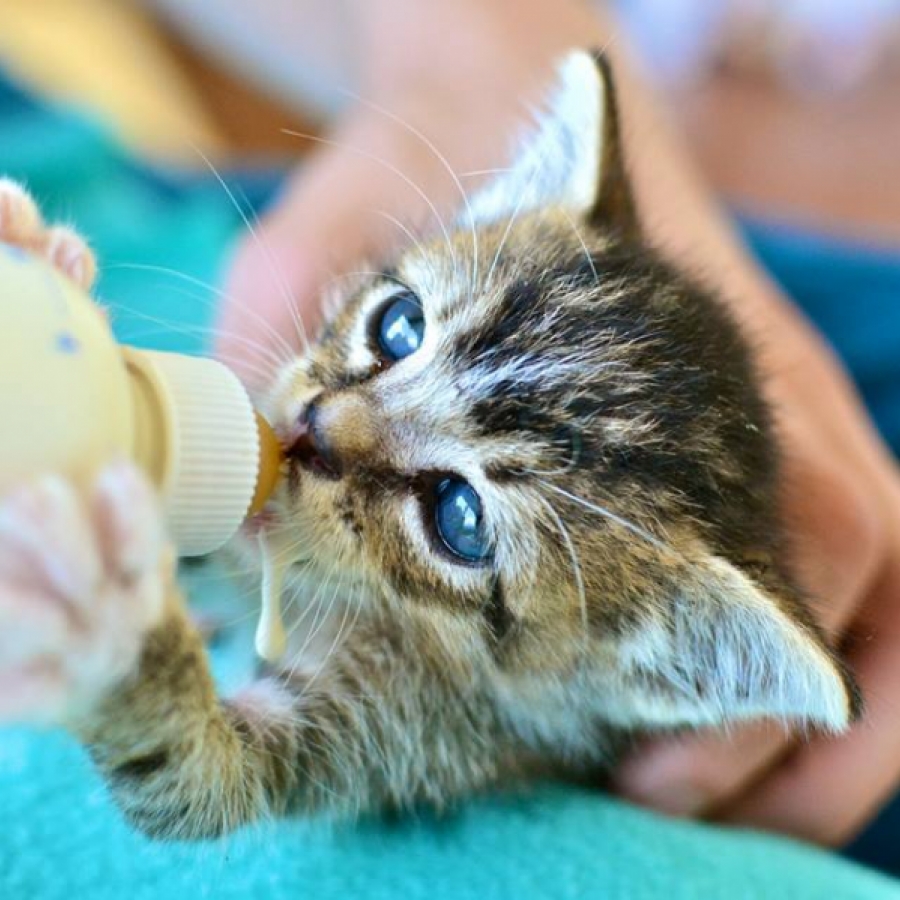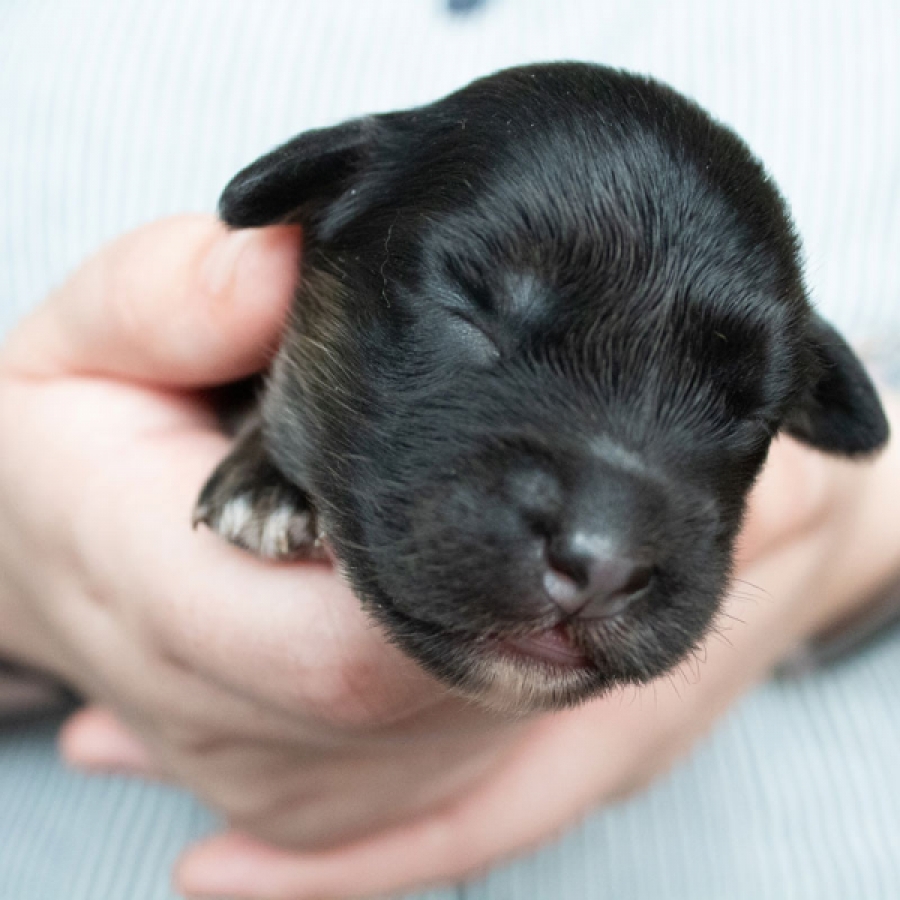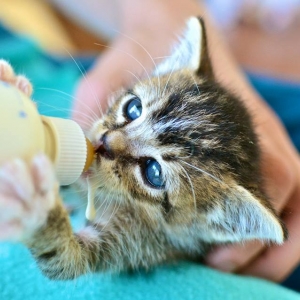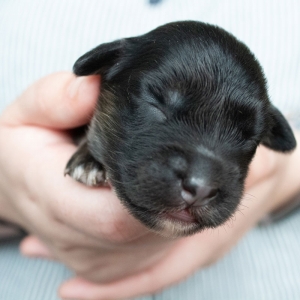In Louisiana, we love our seasons. We have the classic spring, summer, winter, and fall, but we also have additional seasons like Mardi Gras, festival, and crawfish. What you may not realize is that there is another season little known outside of the animal welfare world referred to as kitten and puppy season.
Imagine a season of soft, cuddly, baby animals with little yips and meows. While puppies and kittens are absolutely adorable and a litter of each sounds like heaven, it’s a rough period for animal shelters. Each spring, animal shelters across the country see a sharp uptick in the number of litters of puppies and kittens that arrive at their doors.
In northern climates, this season may be limited to late spring and summer. Here in the Deep South, the season can stretch from very early spring, or even late winter if it is warm enough, to the end of fall. The Louisiana SPCA took in 973 kittens and 186 puppies in 2020, and all of them needed food, shelter, medical care, and someone to provide those things.
Why does this extra kitten and puppy season happen? Warmer temperatures combined with a large population of intact male and female stray animals lead to an increase in breeding activity, and thus an increase in the number of litters being born. It is true that puppies and kittens are born year-round; however, during the spring, summer, and often well into the fall, open-admission shelters are pushed beyond their limit.
Just like humans, if a family does not have a home, it is much more difficult for them to survive. Some of these litters are orphaned or abandoned. Sometimes, a kitten is found alone or injured. Litters of puppies may be rescued from unsafe situations. Other times, nursing mother cats are brought in with their kittens. In the best scenario, the animals are healthy and old enough to be spayed or neutered and put up for adoption.
However, most of these puppies and kittens will require extended stays in the shelter, either because they are too young to be placed for adoption or because they are ill or injured. Some litters brought in without their mothers will be too young to eat on their own and will require bottle feeding and more intensive care. It is a labor of love to care for and raise the young animals, sometimes only days or hours old, but it can also be very stressful once resources such as space, staff, food, litter, and time become stretched thin while animals continue to enter the shelter.
What to do if you find kittens or puppies:
If you would like to help shelters during kitten season, items such as kitten and puppy meal replacer formula, bottles, wet and dry kitten and puppy food, kitty litter, and heating pads are always in short supply and make excellent donations. We recommend asking if the organization you are interested in helping has a wish list of items they are in need of to ensure they are getting the items they need most.
Communities can do their part to improve kitten and puppy season. So much of the heartbreak of kitten season is preventable through spay and neuter. It is the first step in overcoming pet overpopulation. When even a single cat is spayed or neutered, we prevent the suffering of thousands of animals. Over a six-year period, an unaltered female dog, her mate, and their offspring can be responsible for the birth of 67,000 puppies. Over the same six-year period, one unaltered female cat, her mate, and their subsequent offspring can produce more than 66,000 kittens.
Another important way you can help animal shelters and the pet population during kitten and puppy season is by fostering. Fostering is one of the most rewarding experiences because not only do you get to set that animal up for success for the rest of their life, but once that animal is ready to make their adoption debut, you get to help them find their forever family (even if sometimes it turns out to be yourself). When fostering kittens and puppies, you save a life, you feel good, your shelter or rescue group helps more animals, and your foster pet is happy, healthy, and well-socialized. Talk about win-win-win!
Why you should foster:
If you are interested in fostering an animal, contact your area shelter or rescue group for more information. To foster for the Louisiana SPCA, there is an online application at www.louisianaspca.org/foster. There are also many other rescue groups in the area, and most will need help during this time. Help give the kittens in our community a break this season by talking to your local shelter about how you can help.
Imagine a season of soft, cuddly, baby animals with little yips and meows. While puppies and kittens are absolutely adorable and a litter of each sounds like heaven, it’s a rough period for animal shelters. Each spring, animal shelters across the country see a sharp uptick in the number of litters of puppies and kittens that arrive at their doors.
In northern climates, this season may be limited to late spring and summer. Here in the Deep South, the season can stretch from very early spring, or even late winter if it is warm enough, to the end of fall. The Louisiana SPCA took in 973 kittens and 186 puppies in 2020, and all of them needed food, shelter, medical care, and someone to provide those things.
Why does this extra kitten and puppy season happen? Warmer temperatures combined with a large population of intact male and female stray animals lead to an increase in breeding activity, and thus an increase in the number of litters being born. It is true that puppies and kittens are born year-round; however, during the spring, summer, and often well into the fall, open-admission shelters are pushed beyond their limit.
Just like humans, if a family does not have a home, it is much more difficult for them to survive. Some of these litters are orphaned or abandoned. Sometimes, a kitten is found alone or injured. Litters of puppies may be rescued from unsafe situations. Other times, nursing mother cats are brought in with their kittens. In the best scenario, the animals are healthy and old enough to be spayed or neutered and put up for adoption.
However, most of these puppies and kittens will require extended stays in the shelter, either because they are too young to be placed for adoption or because they are ill or injured. Some litters brought in without their mothers will be too young to eat on their own and will require bottle feeding and more intensive care. It is a labor of love to care for and raise the young animals, sometimes only days or hours old, but it can also be very stressful once resources such as space, staff, food, litter, and time become stretched thin while animals continue to enter the shelter.
What to do if you find kittens or puppies:
- If the kittens or puppies are obviously sick, injured, or in immediate danger call 911 immediately so that New Orleans Humane Law & Rescue can respond, or the local animal control agency if the kittens are not in Orleans Parish. Dogs tend to leave their mothers earlier than kittens, so we recommend calling the local animal control agency if you find puppies to ensure that the animals are spayed and neutered.
- If the kittens are newborn through eight weeks old, look for a nest or hiding place. Many times the mother is off hunting and leaves her kittens in a safe place to return to them later
- Return the kittens to the nest or hiding place if you see one. If you do not see one, then move them to a safe place you can watch from a distance. Wait at least six hours to see if the mother returns. If she does, keep a watchful eye on the family over the next few weeks. When the kittens are weaned they can take part in a Trap-Neuter-Return (TNR) program to prevent future litters.
- If the mother cat does not return, determine whether you are willing to care for the kittens.
- If you are caring for the kittens, contact us to let us know you found stray kittens and will be caring for them. We have a team of experienced foster parents and team members to teach you everything you need to know about fostering. We will most likely ask that you bring the animals in to receive a thorough exam from our veterinarian team. When the time comes, the Louisiana SPCA will spay or neuter and find forever homes for the kittens if they are in Orleans Parish.
- If you are not willing or cannot foster the kittens, bring them to us during operating hours and we will try to find temporary foster homes until they are old enough to make their adoption debuts.
If you would like to help shelters during kitten season, items such as kitten and puppy meal replacer formula, bottles, wet and dry kitten and puppy food, kitty litter, and heating pads are always in short supply and make excellent donations. We recommend asking if the organization you are interested in helping has a wish list of items they are in need of to ensure they are getting the items they need most.
Communities can do their part to improve kitten and puppy season. So much of the heartbreak of kitten season is preventable through spay and neuter. It is the first step in overcoming pet overpopulation. When even a single cat is spayed or neutered, we prevent the suffering of thousands of animals. Over a six-year period, an unaltered female dog, her mate, and their offspring can be responsible for the birth of 67,000 puppies. Over the same six-year period, one unaltered female cat, her mate, and their subsequent offspring can produce more than 66,000 kittens.
Another important way you can help animal shelters and the pet population during kitten and puppy season is by fostering. Fostering is one of the most rewarding experiences because not only do you get to set that animal up for success for the rest of their life, but once that animal is ready to make their adoption debut, you get to help them find their forever family (even if sometimes it turns out to be yourself). When fostering kittens and puppies, you save a life, you feel good, your shelter or rescue group helps more animals, and your foster pet is happy, healthy, and well-socialized. Talk about win-win-win!
Why you should foster:
- Fostering increases an animal’s chance of getting adopted. Foster families are usually the first to find out about the pet’s personality. You may even be the first to teach your foster pet basic house manners, making them more appealing to potential adopters
- Your own pets will learn more social skills. The more animals your pets encounter, the better they are at dealing with stress and getting used to strangers. Your pet might even find a playmate in your foster pet.
- You probably already have the space for one more. A spare bedroom, office, or screened porch is the perfect place for a foster pet. Even a bathroom is enough room for a kitten or puppy, and it is much larger than a kennel in a shelter.
- Fostering keeps animals out of shelters. As wonderful as animal shelters are, they can be quite stressful. And there is nothing like the love and warmth of a family! When you foster an animal, a space for another homeless animal in need at the shelter is opened.
If you are interested in fostering an animal, contact your area shelter or rescue group for more information. To foster for the Louisiana SPCA, there is an online application at www.louisianaspca.org/foster. There are also many other rescue groups in the area, and most will need help during this time. Help give the kittens in our community a break this season by talking to your local shelter about how you can help.
Tagged in Paws for Cause in our Online Articles issue




